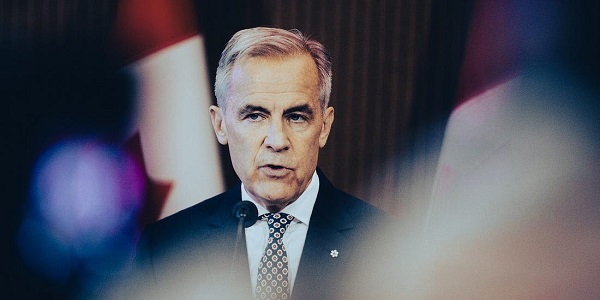Entertainment
History on the Block-Brother Can You Spare $400 million?

History on the Auction Block…DC Comics 1934 to 2014
As a young comic book collector, I often dreamed of finding a comic book horde.
Not a small pile of books with a few 1940s and 50s books in it, but a real stash, one that movies are written about. A collection of books that as you look through the pile you see Action #1, #2, Detective Comics #27 and Worlds Finest #1, the Flash #1, and Wonder Woman #1. That is the kind of treasure I, along with every collector in North America, wanted to find.
I had an aunt once who did have those books, and she clearly remembered saving them until her parents threw them away. She did say she would have given them to me as I was her favorite nephew….
This week, amidst the Covid 19 panic, pandemonium pandemic, the impossible is about to happen.
Ian Levine, an internationally known comic book and music ephemera collector, is auctioning off EVERY DC Comic book published from 1934 to 2014! The total number of books exceeds 40,000! Now, all of these books are the best possible, they are the most rare, most sought after, most significant of all comics. And ONE person, institution or archive will become caretaker to history.
Many professionals, collecto rs and fans have spoken of the magnitude of this Sotheby Auction with awe.
rs and fans have spoken of the magnitude of this Sotheby Auction with awe.
Paul Levitz, in his Facebook post, spoke of assisting Levine with his quest:
“So a story of a quiet day at DC…I think it was over the holiday break, before the company closed for those days. Happened on an ad in one of the comics trades, probably Comic Buyers’ Guide, from a guy who was trying to assemble an absolutely complete DC collection. He was down to hunting some pretty obscure stuff, odd issues of romance and war titles, and many of our ‘custom comics,’ the giveaways we’d produce for companies to promote their products (or for good causes like keeping kids from being blown up by landmines). There were quite a few of the listed customs that were basically valueless but hard-to-find things we had large stacks of to use as samples, so I spent a few minutes in the library and my files pulling a bunch together. Sent them to him with a note that said, “Buy 40,000, get 12 free.” The collector was Ian Levine, and he kindly let Taschen use the collection for the photos for 75 YEARS OF DC. He’s now auctioning off the whole collection at Sotheby’s. Hope it goes to someone who’ll love it, or an institution with a giant endowment and great taste.”
With the pound of the gavel, some billionaire (likely) will become protector of the collection of the century.
To steal and paraphrase a line from Marvel and Stan Lee, with such a great collecton comes great responsibility .May it be used wisely.
Click for a link to the amazing catalogue for the collection follows:


Entertainment
Study finds 99% of late-night TV guests in 2025 have been liberal

Quick Hit:
A new study reveals that liberal guests overwhelmingly dominate late-night TV in 2025, with nearly every political figure or commentator featured leaning left. Just one guest this year was even remotely center-right, according to the analysis.
Key Details:
- The Media Research Center reviewed guest lineups from five late-night comedy programs and found that 99% of political guests so far in 2025 were liberal, with zero elected Republicans featured.
- The survey covered shows hosted by Jimmy Kimmel, Seth Meyers, Jimmy Fallon, Stephen Colbert, and The Daily Show, all of which favored Democrat politicians, liberal journalists, and left-wing commentators.
- Of the 77 non-elected guests tracked, only one—economist Oren Cass—represented a center-right viewpoint, making a single appearance to discuss Trump’s tariffs on The Daily Show.
Diving Deeper:
A recent report by the Media Research Center paints a stark picture of political bias across the late-night television landscape. The analysis, which surveyed the first half of 2025, found that liberal guests were nearly the only voices featured on major late-night comedy programs. According to the report, 99 percent of all political guests on shows like Jimmy Kimmel Live!, Late Night with Seth Meyers, The Tonight Show Starring Jimmy Fallon, The Late Show with Stephen Colbert, and The Daily Show leaned left.
When it came to sitting officeholders, the bias was even more glaring: 30 elected Democrats appeared on these shows, while not a single Republican lawmaker was invited. Some of the most featured repeat guests included far-left figures like Sen. Cory Booker (D-NJ), Sen. Tammy Duckworth (D-IL), and Rep. Jasmine Crockett (D-TX), who each appeared multiple times.
Even among non-politicians, the ideological imbalance persisted. Out of 77 guests analyzed, just one—American Compass executive director Oren Cass—was identified as having a conservative or center-right viewpoint. His lone appearance on The Daily Show was centered on a policy issue: President Donald Trump’s tariffs.
The MRC report also highlighted the recurring presence of left-wing media figures. Nine guests were MSNBC hosts, eight were from CNN, and six others were CNN reporters or analysts. MSNBC’s Chris Hayes was featured three separate times.
The findings are consistent with MRC’s prior research. Since 2022, they note, late-night comedy shows have hosted 511 liberal guests compared to just 14 center-right figures.
Critics argue this lopsided exposure skews public perception and reinforces ideological silos, especially among younger audiences who consume political content through entertainment. The report suggests that late-night programming, once a venue for varied political commentary and humor, now operates more like an echo chamber for the American left.
(AP Photo/Evan Vucci)
Entertainment
Pedro Pascal launches attack on J.K. Rowling over biological sex views

 MxM News
MxM News
Quick Hit:
Pedro Pascal, star of HBO’s The Last of Us, ignited backlash this week after publicly hurling an expletive-laced insult at author J.K. Rowling in response to her support for a landmark UK ruling that upheld the legal definition of sex as biological. Rowling celebrated the decision, which affirms the rights of women to single-sex spaces—a view shared by many who advocate for the safety and integrity of women’s rights. Pascal, a vocal progressive and LGBTQ+ activist, labeled Rowling a “heinous loser,” aligning himself with calls to boycott HBO’s upcoming Harry Potter reboot.
Pedro Pascal calls J.K. Rowling a “heinous loser” after she celebrated the Supreme Court’s ruling regarding trans women’s legal identities. pic.twitter.com/LEGMD79PjQ
— Pop Base (@PopBase) April 24, 2025
Key Details:
-
Pedro Pascal responded on Instagram to Rowling’s post celebrating a UK court ruling that legally defined “sex” as biological.
-
Pascal echoed an activist’s call for a fan-led boycott of the Harry Potter reboot, saying Rowling’s stance was “heinous LOSER behavior.”
-
HBO has downplayed concerns of a boycott, citing the blockbuster success of Hogwarts Legacy despite similar activist campaigns.
Diving Deeper:
The latest clash in the culture war surrounding Harry Potter author J.K. Rowling and the trans activist movement reached a new level of hostility this week when actor Pedro Pascal, a key face of HBO’s entertainment slate, stooped to name-calling on social media. His remarks came in response to Rowling’s defense of the United Kingdom’s recent court decision, which reaffirmed that sex, under British law, means biological sex—a ruling many women’s rights advocates hailed as a long-overdue step toward protecting vulnerable female spaces such as shelters, hospital wards, and sports.
Rowling, whose views on the importance of distinguishing biological sex from gender identity have made her a target of trans activists for years, posted a pointed but unapologetic reaction: “I love it when a plan comes together.” She added, “I get the same royalties whether you read [my books] or burn them. Enjoy your marshmallows!”
In the comments of a post by activist Tariq Ra’ouf—who had attacked Rowling and promoted a boycott of HBO’s Harry Potter reboot—Pascal added his own vulgar commentary: “Awful disgusting SHIT is exactly right. Heinous LOSER behavior.” While Pascal did not explicitly mention Harry Potter, the post he endorsed included calls to tank all future franchise content, including theme parks and merchandise.
Pascal’s involvement with HBO places the network in a difficult position. As the Emmy-nominated co-lead of The Last of Us, one of HBO’s crown jewels, Pascal’s comments are being widely interpreted as an implicit endorsement of the boycott. While HBO has attempted to downplay the activist push, the tension is palpable. Casey Bloys, HBO’s chief content officer, previously noted that the 2023 video game Hogwarts Legacy, which also faced calls for boycotts due to Rowling’s views, still became the year’s top-selling game.
Pascal’s activism is personal as well as political. His sister, Lux Pascal, publicly transitioned in 2021, and he has frequently signaled support for trans activism. At the UK premiere of Marvel’s Thunderbolts, Pascal wore a shirt that read “Protect the Dolls,” a slogan popularized in trans activist circles.
Rather than “heinous,” Rowling’s remarks represent a reasoned defense of biological reality and a pushback against an increasingly aggressive ideology that demands conformity and punishes dissent. Her critics, like Pascal, resort to vulgarity and character attacks instead of engaging with the substance of her argument. But Rowling has stood firm in supporting women’s rights and advocating for clarity in laws that impact everything from sports to safety in single-sex spaces—positions grounded in truth, not hate.
-

 International2 days ago
International2 days agoMatt Walsh slams Trump administration’s move to bury Epstein sex trafficking scandal
-

 National2 days ago
National2 days agoDemocracy Watch Blows the Whistle on Carney’s Ethics Sham
-

 Energy1 day ago
Energy1 day agoIs The Carney Government Making Canadian Energy More “Investible”?
-

 Business1 day ago
Business1 day agoDemocracy Watchdog Says PM Carney’s “Ethics Screen” Actually “Hides His Participation” In Conflicted Investments
-

 Business1 day ago
Business1 day agoCompetition Bureau is right—Canada should open up competition in the air
-

 Immigration1 day ago
Immigration1 day agoUnregulated medical procedures? Price Edward Islanders Want Answers After Finding Biomedical Waste From PRC-Linked Monasteries
-

 Business1 day ago
Business1 day agoIt’s Time To End Canada’s Protectionist Supply Management Regime
-

 COVID-191 day ago
COVID-191 day agoFreedom Convoy leaders’ sentencing hearing to begin July 23 with verdict due in August






